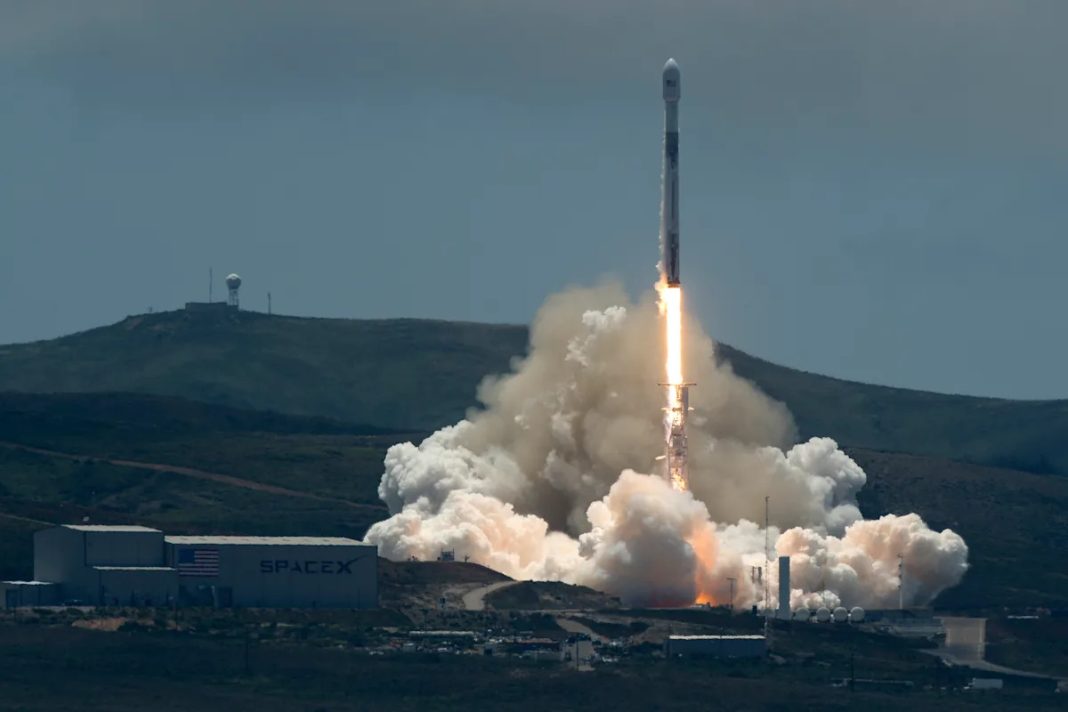California regulators on Thursday rejected a U.S. military plan to increase SpaceX launches from a Southern California base, amid an ongoing lawsuit from CEO Elon Musk related to a previous vote.
California Coastal Commission members voted unanimously to oppose the U.S. Space Force’s application to increase SpaceX launches from Vandenberg Space Force base from 50 to 100 annually. They said that military officials failed to provide data on potential impacts on local wildlife and neighboring towns, while avoiding the direct discussion of Musk that spurred a rebuke from Gov. Gavin Newsom last year.
“There are a number of unanswered questions that make it really quite impossible for us to engage,” said Vice Chair Caryl Hart. “We see no appearance by U.S. Air Force, U.S. Space Force or SpaceX to answer the questions.”
It’s the second time the commission, which has jurisdiction over development on 1,100 miles of California coastline, has opposed plans to increase the frequency of SpaceX launches in Santa Barbara County.
Musk sued the agency after its first rejection, in October, when commissioners voted 6-4 to reject the Space Force’s proposal to increase launches from 36 to 50 per year, arguing that SpaceX should apply for a permit for commercial activity.
The commissioners’ October deliberations at times veered into criticism of Musk’s support for President Donald Trump and his political stances. Newsom, who appoints four of the commissioners, publicly sided with Musk in the dispute.
Commissioners did not mention Musk during Thursday’s hearing, instead citing a lack of data and concerns that Space Force is shielding SpaceX from having to apply for commercial permits.
“There’s a possibility of causing irreversible harm to our coastline and our coastal resources,” said Commissioner Raymond Jackson, who was appointed in May by Senate Pro Tem Mike McGuire. “We owe it to the public and to the future to insist on data-driven, transparent decision making.”
Thursday’s vote came after commission staff recommended that the agency reject the proposal, saying that the military failed to provide data on potential impacts of sonic booms on wildlife and neighboring communities. The commission has also pushed back on Space Force’s argument that all of the launches are federal activity exempted from state permitting, arguing that the majority of launches are commercial missions that do not carry military payloads.
Neither Space Force nor SpaceX attended the meeting or responded to requests for comment. Commission staff said the agency does not have the authority to stop the increase in launches.
While the October vote generated hundreds of public comments — including bipartisan support from lawmakers — and hours of debate over the impact of launches and the economic benefits of the space industry, Thursday’s meeting flew largely under the radar.
Environmental groups that oppose the launch increase said that’s because the commission ultimately cannot stop the plan from moving forward. Military officials moved forward with the increase after October’s vote, citing federal preemption and national security considerations.
“It feels a bit like we’re speaking into a void,” said Jennifer Savage, California policy associate director for the Surfrider Foundation.
Unlike in October, when Space Force officials attended the meeting and pledged to develop measures to protect the environment and coastal access, military representatives were not present Thursday and did not respond to commission staff’s requests to provide updates on progress.
Space Force’s lack of communication has sparked criticism from some lawmakers who supported the October launch increase.
“The Space Force Base and the federal government, in my judgment, should be doing everything they can to make sure that this is grounded in science and that we know that we’re doing the most we can to mitigate the impacts of these launches,” Assemblymember Gregg Hart, who represents the region, said in an interview last week.
U.S. Space Force and SpaceX are expected to begin construction of a second launch site at Vandenberg Space Force Base later this year.

